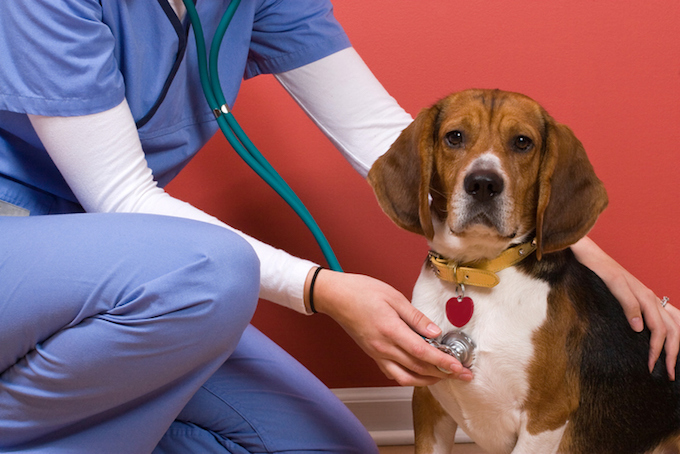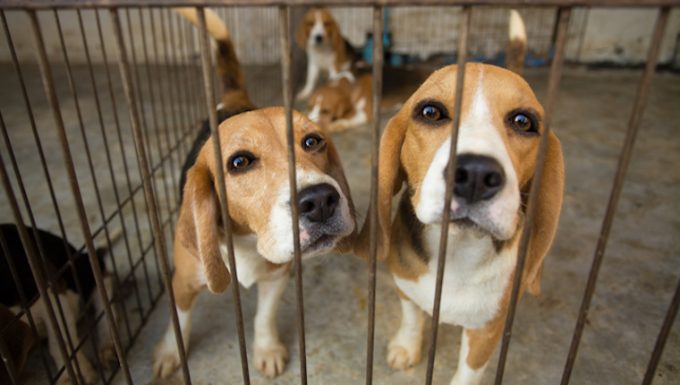Brucellosis in dogs is a bacterial infection. The condition often affects a dog’s reproductive system and can cause miscarriages.
Unfortunately, the condition is very infectious. Dogs in kennels are at high risk of the condition. Additionally, the condition is zoonotic. That means dogs can spread it to humans.
Technically, the condition is caused by the bacterium Brucella canis.
If you see the signs of the condition in your dog, then get to a veterinarian for a proper diagnosis and treatment.
Here’s what you should know about the symptoms, causes, and treatments for the condition.
Symptoms of Brucellosis in Dogs
The condition produces a number of symptoms. For example, some of the most common symptoms include:
- Discharge (from the vagina)
- Infected testicles
- Back pain
- Eye inflammation
- Infertility
- Low sex drive
- Swollen lymph nodes
- Acting lethargic
- Abortion
- Giving birth to weak puppies
- Fever
Causes of Brucellosis in Dogs

The cause of the condition is usually breeding. Additionally, an infected female dog’s milk can also spread the condition.
Unfortunately, the Beagle breed suffers from the condition more than usual.
Generally, dogs in kennels are at high risk of developing the condition.
Treatments for Brucellosis in Dogs
Firstly, your vet will ask about your dog’s symptoms. Secondly, your vet will ask about any circumstances where your dog could have come into contact with an infected dog.
Thirdly, your vet will carry out a full physical examination. Blood and urine tests will also be taken. Additionally, a titer test can confirm the condition. This test shows your dog’s antibody levels.
Generally, treatment for your dog involves antibiotics. As always, if your vet prescribes your dog any medicine, make sure to stick to the correct dose and frequency instructions. Also, complete the full course of medicine.
Finally, dogs with this condition should be discouraged from breeding. Your vet can talk you through spaying and neutering options for your dog.
Have you ever cared for a dog who suffered from this condition? How did your vet help your dog recover? Let us know in the comments section below.









